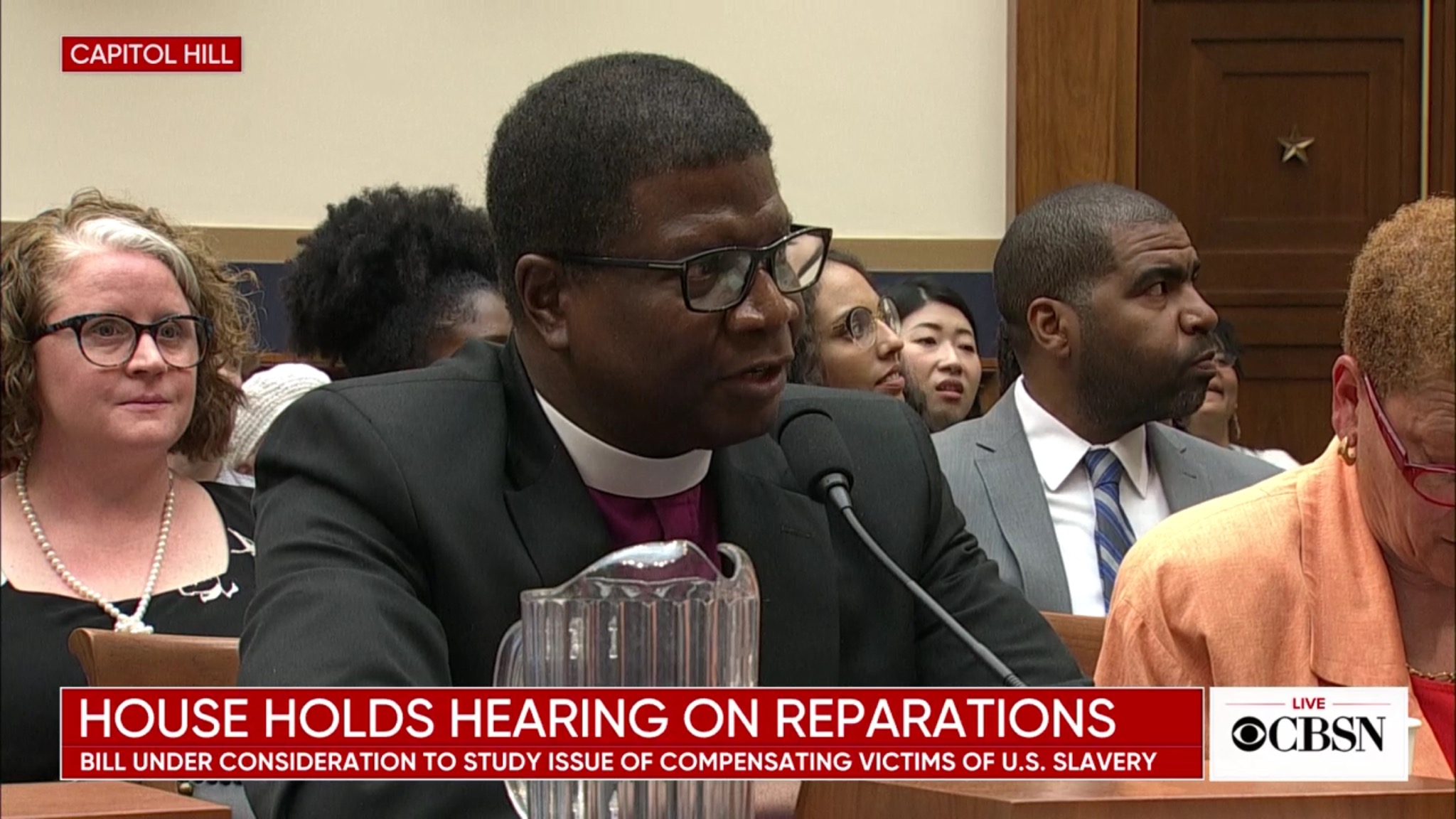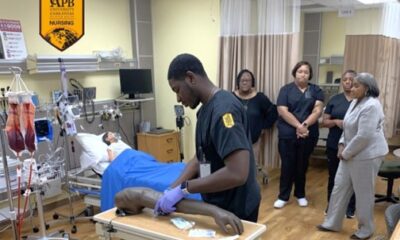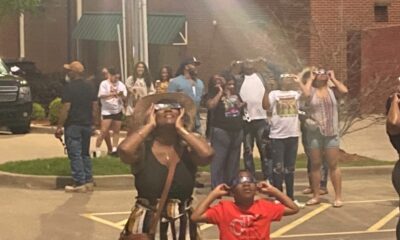Black History
First-Ever Congressional Hearing on Slave Reparations Held on Juneteenth

In what many viewed as a nod to the significant role African Americans have played in the nation’s history, the House of Representatives held its first reparations hearing on Juneteenth while millions around the country celebrated the tradition for the place it holds as the day in 1865 when slaves in Texas finally learned they were free, months after the Civil War ended.
With high-profile testimony from author Ta-Nehisi Coates to actor Danny Glover to U.S. Senator Cory Booker, the Congressional hearing sent social media into overdrive as opinions were shared about the “economic underpinnings” of America’s financial success and its undeniable roots in slavery.
“There is some unfinished business,” Rev. Eugene Taylor Sutton, A Maryland Episcopal Bishop said. “It’s not just about writing a check.”
Coates disagreed and so do many others who believe reparations should include monetary compensation and not just programs to address a roster of wrongdoing. Coates is credited with pushing the national dialogue in 2014 when he wrote an article about the issue. Former Congressman John Conyers introduced reparations in 2007 and did so every year until he retired in 2017. Texas Congresswoman Shelia Jackson picked up the baton and championed H.R. 40 in Conyers’ absence, and a House Judiciary subcommittee sponsored today’s proceedings which drew hundreds to Capitol Hill. House Speaker Nancy Pelosi called for a reparations study.
Less than 24 hours before the hearing, Senate Majority Leader Mitch McConnell unleased a torrent of criticism for his comments opposing reparations.
“I don’t think reparations for something that happened 150 years ago, for whom none of us currently living are responsible is a good idea,” he said. McConnell indicated the country had attempted to atone for its “original sin” of slavery by “electing an African American President.” And, according to a 2016 Marist poll, the Senator is not the only one against reparations.
Economist and Civil Rights champion Julianne Malveaux pointed out that the impact of slavery and its legacy of racism persist into the 21st century.
“Zip code deals with the food you eat…those are the vestiges of slavery,” she stated.
Later this year the 400-Year Commission on American African History , which Congress established to commemorate the first Africans who arrived in the English Colonies in 1619, will sponsor events devoted to contributions made by African Americans. Some cities celebrated today as an ‘International Day of Drumming and Healing.’ In Pine Bluff, Arkansas, Houston and New Orleans festivities were planned.
Before the sun rose in Pine Bluff, the church bell tolled at Elm Grove Baptist Church where Rev. Jesse Turner is the Senior Pastor, signaling the start of Juneteenth. Turner also organized a conversation around race held Wednesday evening at the area’s Arts and Science Center.
“These things have fostered inequality and treatment that was thrust upon us,” said Turner. “And, so that’s where the healing comes in. How do we heal? From Jim Crow as a nation…we can’t overlook them, can’t wink your eye at them. You just can’t say these things didn’t happen. Lynching happened, and you can’t overlook the profound impact these things had on a people. How do you eradicate the racism? Let’s talk…we have to deal with them and put them on the table.”

-

 Featured12 months ago
Featured12 months agoArkansas Sheriff Who Approved Netflix Series Says He Stayed ‘In His Lane’
-

 HBCUS12 months ago
HBCUS12 months agoSenator Boozman Delivers $15 Million to Construct New UAPB Nursing Building
-

 News12 months ago
News12 months agoMillions In the Path of The Total Solar Eclipse Witnessed Highly Anticipated Celestial Display
-

 Featured9 months ago
Featured9 months agoCalifornia Is the First State to Create A Public Alert for Missing Black Youth
-

 Featured9 months ago
Featured9 months agoAfrican American Leaders Stay the Course Amid Calls for President Biden To Bow Out of Race
-

 Featured9 months ago
Featured9 months agoThe Debate Fallout Lands on Both Candidates









